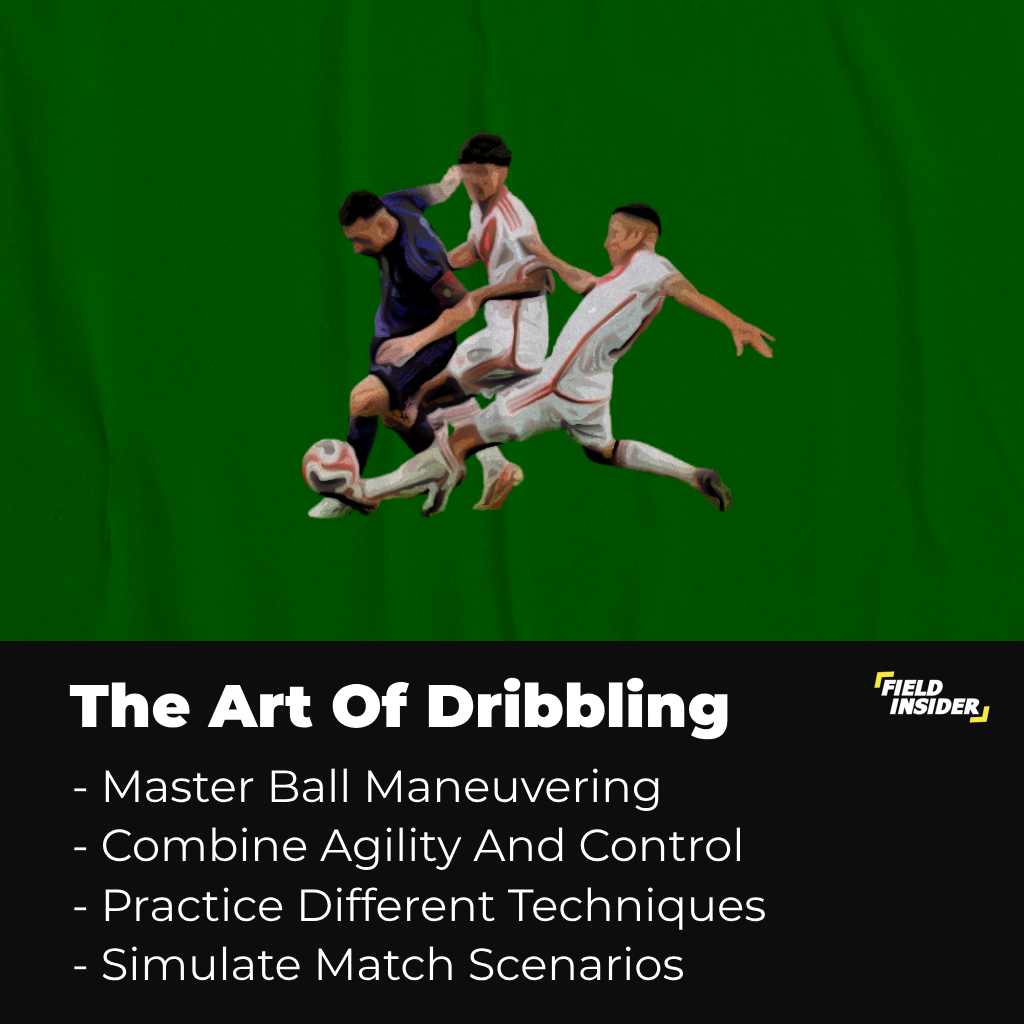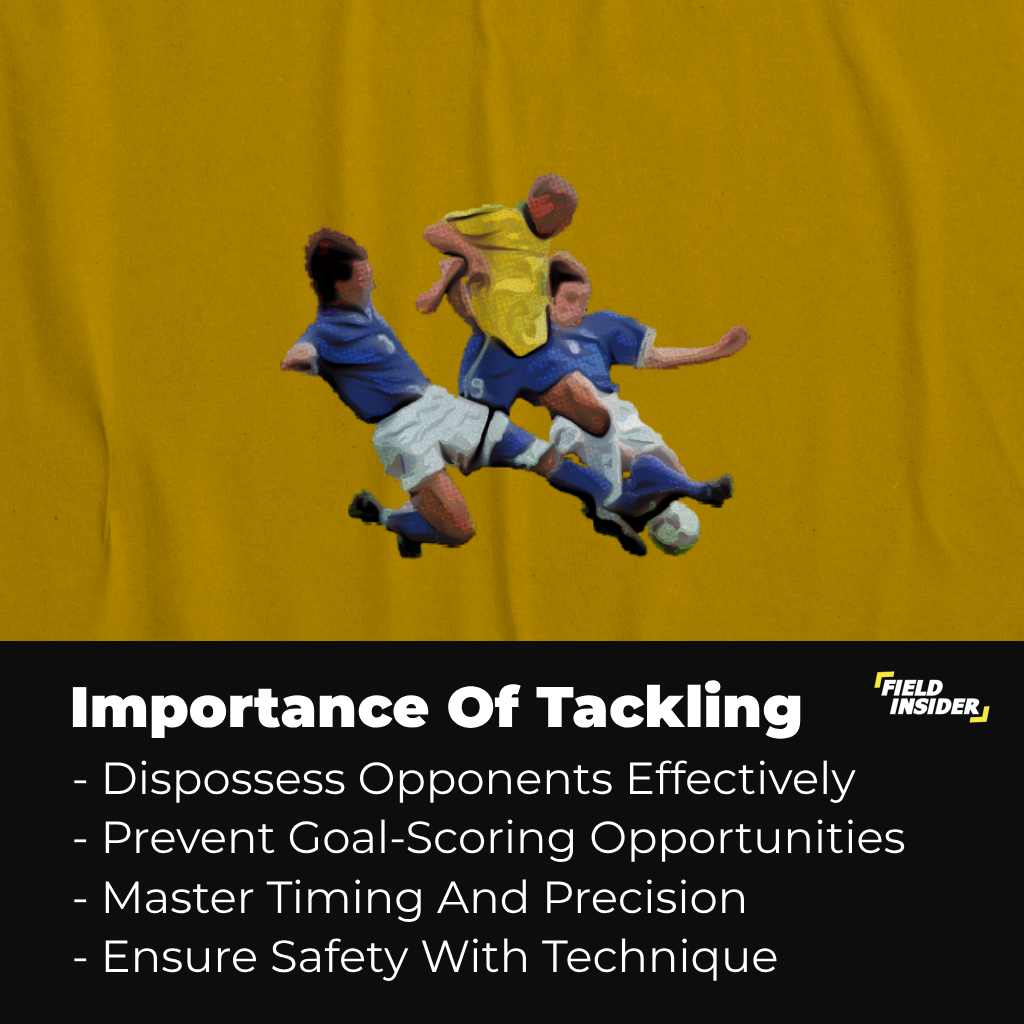Unlock The Most Important Football Skills For Young Players
Welcome to our in-depth exploration of mastering essential football skills for young players. In the world of football, developing a strong foundation in the early stages of a player’s journey is not just beneficial; it’s imperative.
This guide delves into the core football skills and mental attributes necessary for young athletes to excel in this dynamic and competitive sport. Our aim is to provide insights that are both practical and transformative, fostering a new generation of football talent ready to take the field by storm.
Key takeaways
| Skill Area | Key Takeaways |
|---|---|
| Dribbling | Essential for control and movement. Focus on different techniques and regular practice. |
| Passing & Shooting | Fundamental for teamwork (passing) and scoring (shooting). Emphasize precision, timing, and power. |
| Defensive Skills | Tackling and marking are crucial. Learn effective and safe strategies. |
| Goalkeeping | Key skills include positioning and shot-stopping. Training exercises to enhance reflexes and positioning. |
| Teamwork & Communication | The backbone of successful football. Focus on drills that promote teamwork and effective on-field communication. |
| Physical Conditioning | Fitness is non-negotiable. Includes exercises to improve strength, endurance, and agility. |
| Mentality & Sportsmanship | Essential for personal and professional growth. Focus on developing the right mindset and the importance of fair play. |
The Fundamentals of Football Skills
Dribbling

Techniques and Practice
Dribbling is the art of moving the ball while running, an essential skill that separates good players from great ones. It involves a combination of agility, ball control, and spatial awareness.
Young players should focus on mastering various dribbling techniques, like the inside and outside touches, to navigate effectively on the field. Regular practice is key, and drills that simulate match scenarios can be particularly beneficial.
Enhancing Ball Control
Ball control is fundamental in dribbling. It’s about how well a player can maintain possession under pressure and in tight spaces. This aspect requires a keen sense of balance, coordination, and quick decision-making.
Young players should engage in exercises that challenge their ball control, such as dribbling through cones or practicing in small, confined areas. Improved ball control leads to better dribbling, which is essential for attackers on the field.
Passing & Shooting
The Art of Passing
Passing is more than just transferring the ball; it’s about strategy, vision, and execution. A good pass can change the game’s dynamic, providing opportunities and advantages. It is one of the basic football skills.
Young players must learn various passing techniques, like short passes for tight spaces and long passes for switching play. The ability to pass accurately under different conditions is critical. Regular training should include passing drills that mimic game situations, emphasizing accuracy, timing, and decision-making.
Mastering Shooting
Shooting in football is the culmination of technique, power, and precision. It’s the skill that scores goals and wins matches. Young players should work on different shooting techniques, such as volleys, ground shots, and headers.
Understanding when and how to shoot is as important as the physical act itself. Practicing shooting in varied scenarios helps players become more versatile and unpredictable in front of the goal. To further refine shooting techniques, players can benefit from our specialized content on football training exercises at home.
The Impact of Targeted Practice on Passing Accuracy
As we delve into the factors contributing to a young player’s progression in football, the enhancement of fundamental skills through targeted practice cannot be overlooked.
The finding of the study, “The impact of target shooting exercise on passing accuracy in soccer games” highlights a significant improvement in the area of passing accuracy, a testament to the effectiveness of focused training regimens.

The accompanying bar chart illustrates the tangible progress made by players in their passing accuracy following a period of targeted shooting practice. It compares the minimum and maximum pass accuracy scores before and after the intervention.
Initially, the pre-test results displayed a minimum pass accuracy of 12, with the maximum reaching 17. Post-intervention, there was a notable increase, with the minimum score rising to 15 and the maximum to 20.
This visual representation not only validates the positive impact of targeted training but also serves as a motivational tool for players and coaches alike.
Defensive Skills
Importance of Tackling
Tackling is a critical defensive skill in football, essential for dispossessing opponents and averting goal threats. It combines timing, precision, and decision-making.

Young players should learn various tackling techniques, like slide and block tackles, and understand their appropriate usage in different situations. Safety is crucial, hence the emphasis on correct technique to prevent injuries.
Effective Marking Strategies
Marking is about strategically shadowing opponents to prevent them from receiving the ball. This skill requires continuous vigilance, spatial awareness, and the ability to predict opponents’ movements.
Training should focus on various marking techniques, teaching young players how to balance their attention between the ball and the opponent. Effective marking can disrupt the opposition’s offensive plays, making it a vital skill for defenders.
Positional Awareness
Positional awareness in defense involves understanding one’s role in the team’s defensive structure. It’s about being in the right place at the right time to intercept passes or tackle opponents.
Young players should learn to read the game, anticipate play, and position themselves effectively. Training sessions should include exercises that develop a player’s ability to judge space and react to shifting dynamics on the pitch. Enhancing positional awareness is key to a strong and cohesive defense.
Anticipating the Opponent’s Moves
Anticipating an opponent’s next move is a skill that separates good defenders from great ones. This requires not only physical readiness but also a deep understanding of the game.
Players should be encouraged to study opponents’ playing styles and tendencies. Drills that simulate various offensive strategies can help defenders improve their anticipation skills. Being one step ahead of the opponent can significantly reduce their chances of scoring.
Goalkeeping Skills
Goalkeeper Positioning
Proper positioning is a cornerstone of effective goalkeeping. It’s about being in the right place at the right time to maximize the chance of making a save. Young goalkeepers should focus on understanding angles and positioning to cover the goal effectively.
This skill involves anticipating where the ball will go and adjusting position accordingly. Regular practice in various game-like scenarios can greatly improve a goalkeeper’s positioning instincts.
Shot-stopping Techniques
Shot-stopping is the most visible and celebrated aspect of goalkeeping. It involves reflexes, agility, and courage. Developing a range of techniques to stop different types of shots is crucial.
Young goalkeepers should practice handling low and high shots, as well as learning how to dive safely and effectively. Drills that simulate real-game shooting scenarios are essential for enhancing this skill.
Handling and Distribution
A goalkeeper’s role isn’t just about stopping shots; it’s also about how they handle the ball and distribute it to teammates. Good handling ensures safety in catching or parrying shots, while effective distribution can launch counter-attacks.
Young goalkeepers should practice various throwing and kicking techniques to improve their ability to distribute the ball accurately and quickly.
Cross and Set-Piece Management
Dealing with crosses and set-pieces is another crucial aspect of football skills for goalkeeper. Goalkeepers need to judge when to catch, punch, or stay on the line. They should be aware of their area, commanding it during corners or free-kicks.
Training should include specific drills for dealing with aerial balls and organizing the defense during set-pieces.
Teamwork and Communication

Fostering Teamwork on the Field
Teamwork is the lifeblood of football, where the collective effort often trumps individual brilliance. This football skills is essential for young players to learn how to work effectively as part of a team.
This involves understanding team strategies, playing to each other’s strengths, and supporting teammates both on and off the field. Training drills that emphasize collaborative play, such as passing exercises and tactical games, help inculcate a strong sense of teamwork.
Effective Communication Skills
Communication on the pitch goes beyond verbal cues; it includes body language, gestures, and understanding teammates’ playing styles. Effective communication helps in making quick decisions, forming strategies, and avoiding misunderstandings during play.
Young players should be encouraged to communicate clearly and assertively. Drills that require players to coordinate with each other can greatly enhance their communication skills.
Promoting On-Field Leadership
Leadership on the field is not just the responsibility of the team captain; every player can exhibit leadership qualities. This involves taking initiative, motivating teammates, and showing resilience in challenging situations.
Young players can be groomed for leadership by encouraging them to take responsibility during training sessions and games. Activities that require players to lead a group or make decisions can foster leadership skills, benefiting team dynamics.
Physical Conditioning
Building Endurance and Stamina
Endurance and stamina are critical for football players, allowing them to maintain high performance levels throughout a game. For young players, developing endurance involves engaging in aerobic exercises like running, cycling, or swimming.
Training should include activities that simulate the stop-start nature of football, such as interval training. This builds the stamina needed to keep up with the pace of the game, enhancing overall play.
Strength and Agility Training
Strength and agility are essential for footballers to execute powerful movements and quick directional changes effectively. Strength training for young players should focus on building core strength and stability, which are crucial for almost every football action.
Agility drills, such as ladder exercises and cone drills, help improve quick footwork and the ability to change direction swiftly. A balanced regimen combining strength and agility training can significantly improve a player’s physical capabilities on the field.
Injury Prevention and Recovery
Injury prevention is a key aspect of physical conditioning. Young players must learn proper techniques for warming up, cooling down, and stretching to minimize the risk of injuries.
Training should also educate players about the importance of rest and recovery, including adequate sleep and proper nutrition. Understanding and practicing injury prevention and recovery methods ensure that players can consistently perform at their best while maintaining long-term physical health.
Mentality and Sportsmanship
Developing a Competitive Mindset
A competitive mindset is key for young footballers to succeed in the sport. It involves determination, resilience, and the drive to continuously improve. Players should be encouraged to set personal goals and work relentlessly towards achieving them.
It’s also important to foster a mindset that views challenges and setbacks as opportunities for growth. Training sessions that simulate competitive scenarios can help in cultivating this mindset, preparing young players for the rigors of the sport.
Embracing Sportsmanship and Fair Play
Sportsmanship and fair play are foundational values in football. Young players must learn to respect opponents, officials, and the rules of the game. Emphasizing sportsmanship helps in building character both on and off the field.

Players should be taught to handle both victories and defeats with grace, and to treat others with respect. Incorporating lessons on sportsmanship into training can help instill these values from an early age.
Managing Emotions and Pressure
Managing emotions and dealing with pressure are crucial aspects of a footballer’s mental game. Young players often face stressful situations in matches, and how they handle these moments can impact their performance.
Training should include techniques for emotional regulation, such as deep breathing exercises or visualization. Helping players develop coping strategies for high-pressure situations enables them to stay focused and perform effectively during crucial moments of the game.
Conclusion
In conclusion, this comprehensive guide has navigated through the crucial areas of football skills and development for young players. From the technical aspects like dribbling, passing, and shooting, to the nuanced areas of mental toughness and sportsmanship, each element plays a significant role in shaping a player’s journey in football.
We encourage young football enthusiasts to embrace these lessons with passion and perseverance, as they head towards becoming the next generation of football greats.








